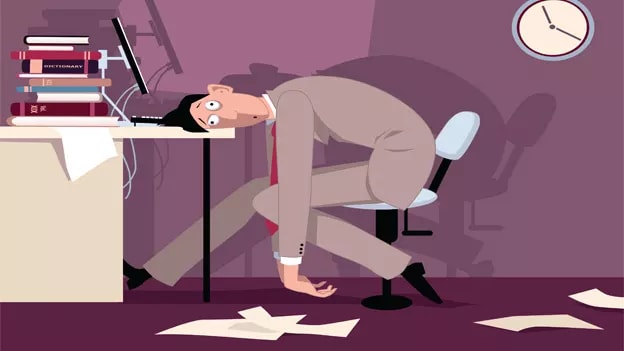Why sleep is the deciding factor of your leadership style

Absence of time to engage in the most primitive activity of eating has become so universally acceptable that it has given birth to a whole new liquid food industry in the Silicon Valley. It is as if Maslow’s pyramid has been inverted, and the basic human needs (of survival) have become the least of concerns for people. Another such activity is sleeping. The average sleeping hours of 40% of the population is less than 7 hours, which is far from ideal. In India, a study has said that 93% people are sleep-deprived. Even if you reverse the numbers at the ones and tens places, it still stays a worrisome figure.
Overworking has taken away sleep off of people’s schedules, and the higher up the hierarchy you go, the more people you find overworking. A body of academic research has been studying the causality between sleep and leadership behaviour. In this article, we extract the findings of a series of such academic researches and share how sleep deprivation affects leadership behaviour.
Three different research studies, all done by Christopher Barnes, Associate Professor of Management at the University of Washington’s Foster School of Business in collaboration with other fellow researchers, examine the impact of sleep deprivation on particular leadership behaviours. We share the findings of those research studies highlighting what sleep deprivation does to leadership behaviours.
Sleep deprivation:
Triggers abusive behaviour in leaders
Every leader follows her own leadership style – some believe in ‘Command & Control’, while one faction believes in ‘Ask & Inspire’. Independent of the belief and style of leadership, there are many leaders who oscillate between being nice and abusive on different days. On some days, they show characteristics associated with one style of leadership; on other days, they show characteristics associated with a different style of leadership. Building on his initial research on sleep’s importance in restoring one’s ability to exert self-control, Barnes conducted another study which hypothesized that “a lack of self-control on a given day would leave leaders more likely to engage in the negative behaviours associated with abusive supervision.”
The research concluded that the quality of sleep (not necessarily the quantity) influenced “the leader’s self-control abusive supervision behaviour”; which was further responsible in determining the engagement levels of that leader’s subordinates.
A leader’s quality of sleep influences the leader’s self-control abusive supervision behaviour
Makes leaders less inspiring
Managers manage, and leaders lead. What distinguishes leaders from managers is their ability to use their charisma to inspire people. Research has shown though, that sleep-deprivation robs leaders of their charisma. Sleep-deprived leaders cannot regulate their displays of positive emotion as effectively as the ones who sleep soundly. This makes them less charismatic.
The research had another interesting facet to it. It studied the perception capabilities of sleep-deprived followers and compared it against followers who sleep soundly. The research found that the individuals who are sleep deprived find it hard to absorb positive emotions and thus, the ones who sleep effectively get inspired easily when compared. Hence, encouragement to overwork by leaders can be counter-intuitive because it tarnishes their charisma in front of their own people, which results in the latter losing motivation and effectively productivity.
Introduces hostility in a leader-follower relationship
The latest paper, entitled “Lack of sleep and the development of leader-follower relationships over time”, published by Barnes, co-authored with Cristiano L. Guarana, concludes that “leader sleep deprivation undermined the follower’s perception of the quality of their working relationship” The research found that sleep-deprivation lead to the expression of hostility which translated into damaged working relationship between employees and their managers. Sleep-deprived followers also developed a negative perception of the leader and the quality of their work relationship.
Leader sleep deprivation undermined the follower’s perception of the quality of their working relationship
A hostile work relationship damages trust, diminishes mutual respect, making it difficult for the manager and reportee to work effectively and with cohesion. The eventual impact is on the productivity of the employee, and the ripple effect is felt by the team and ultimately the business. Harmony in working relationships of leaders and followers is essential for any business to thrive. While there are a lot of uncontrollable variables at play which make a working relationship hostile – sleep is one such variable which is well in control of all the stakeholders. The only question is – Do the stakeholders acknowledge it? Maybe findings from this academic body of research can be enough proof.











